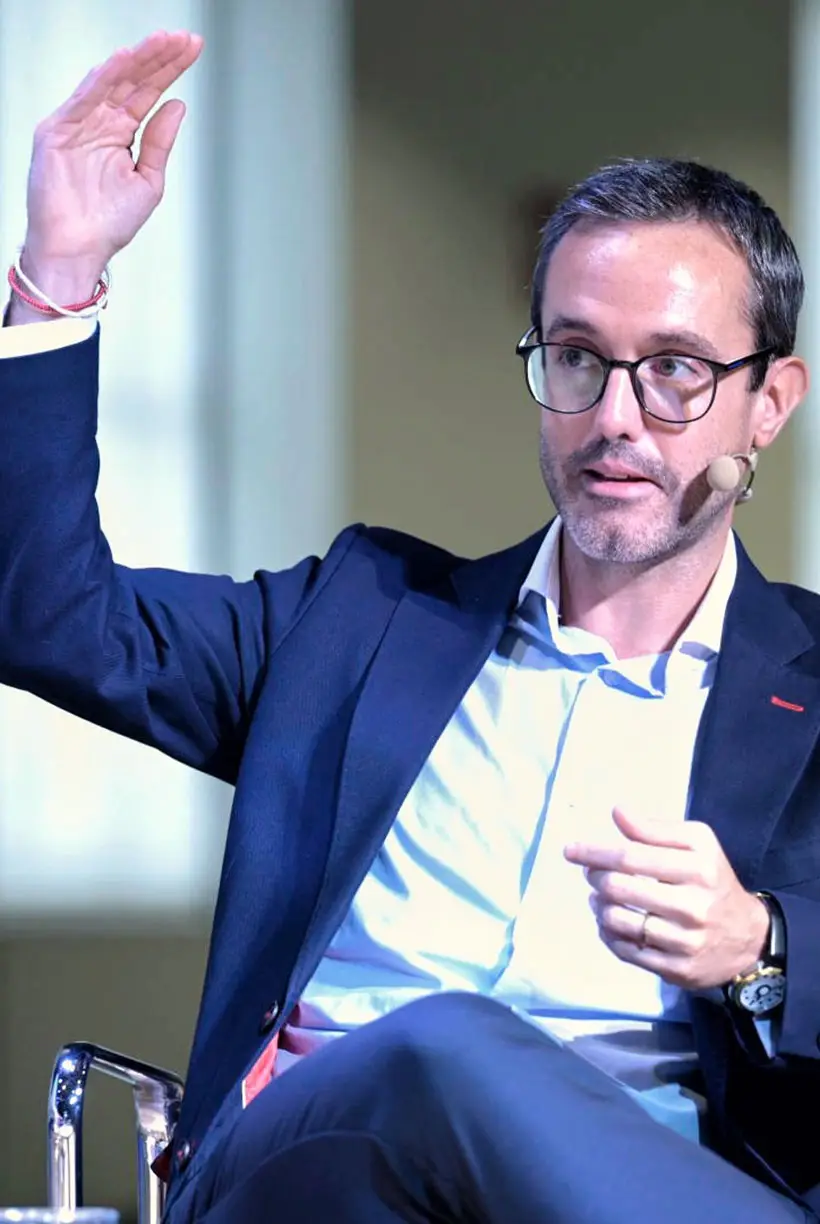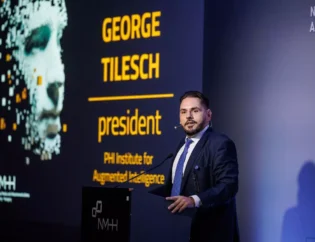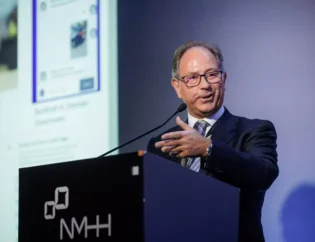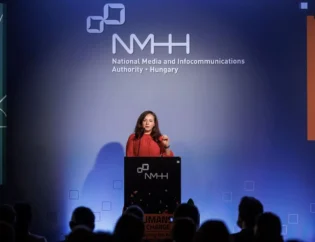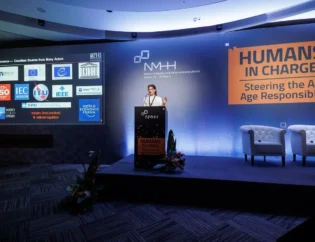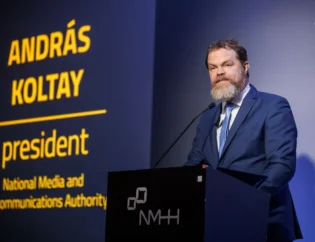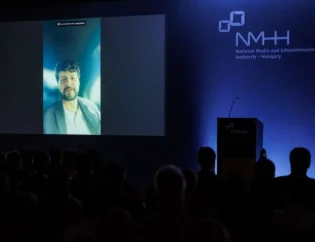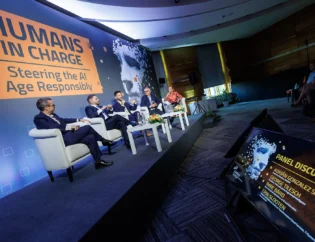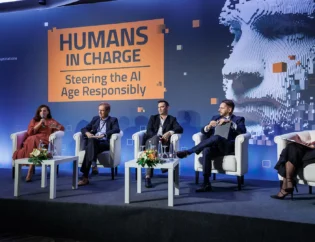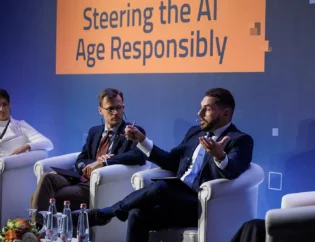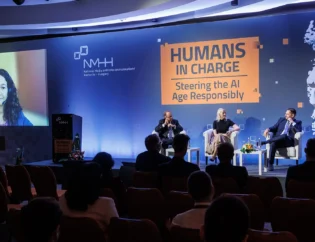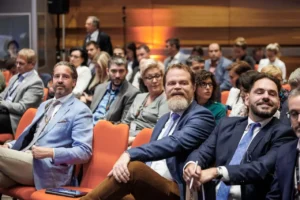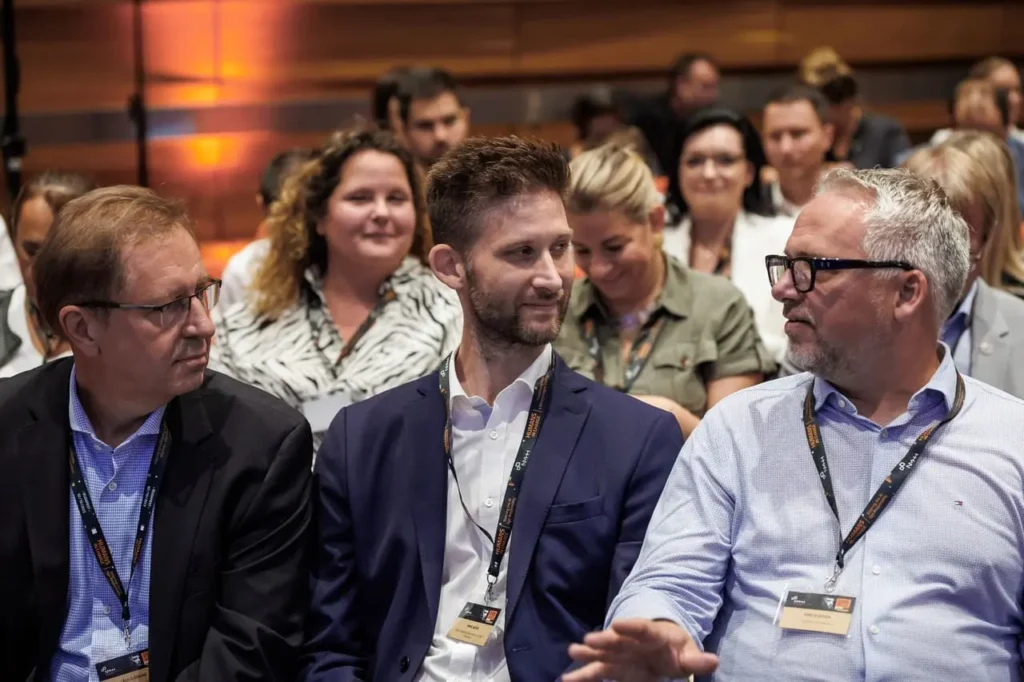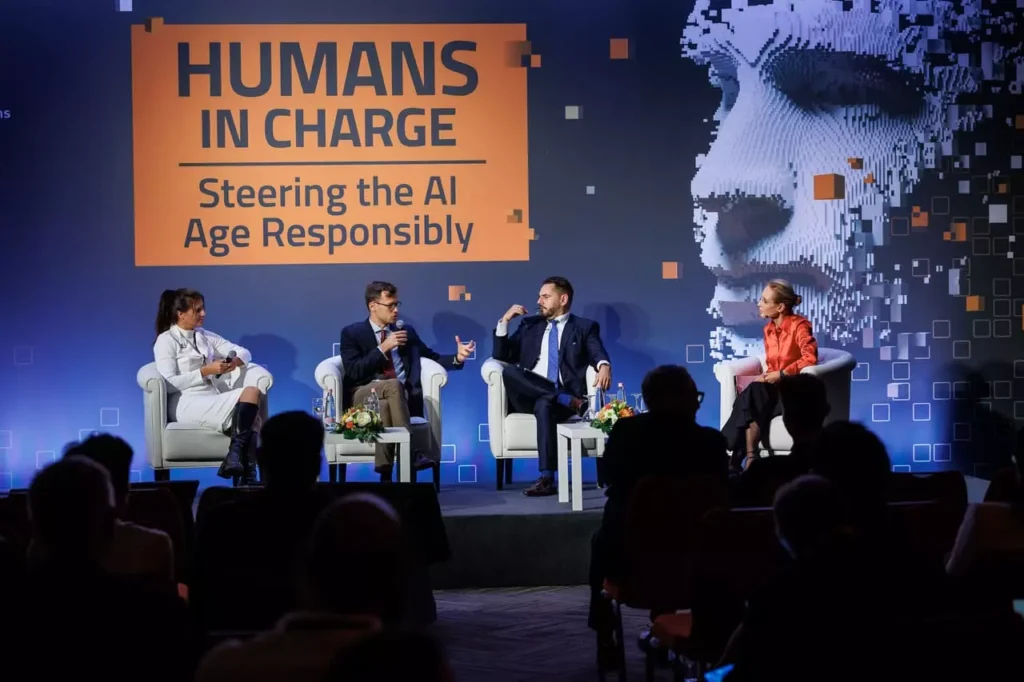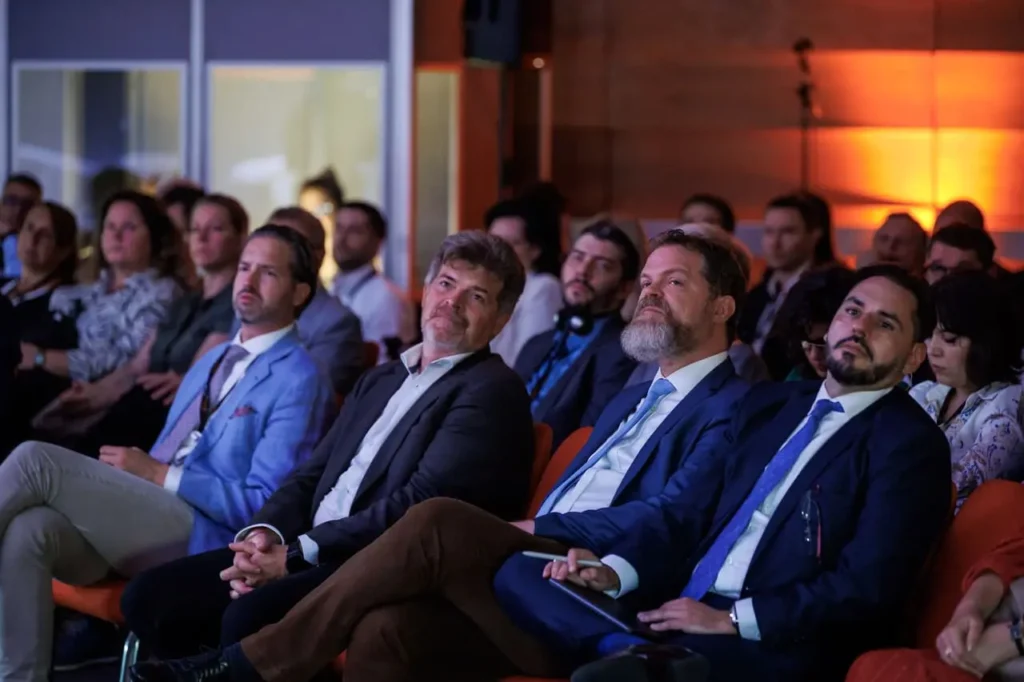Adrian Gonzalez Sanchez called for cooperation between government and the private sector
What do we mean by responsible AI from Microsoft’s point of view and in terms of public-private collaboration? This was the first key theme of the conference “Humans in Charge – Steering the AI Age Responsibly” in Budapest. The keynote speech was given by Adrian Gonzalez Sanchez, university lecturer and Data & AI Lead for Public Sector & Health at Microsoft Spain.
More than progress: revolution
Adrian Gonzalez Sanchez thinks that when it comes to AI, we are not just talking about the development of a technology but also a global societal transformation, and as the pace of innovation is indeed becoming exponential, humans need to keep up. The advance of artificial intelligence, however, is more than just development: to him, it is a revolution.
To substantiate the above statement, he cited some figures about generative AI, the latest stage in the history of AI, from this year’s report by McKinsey & Company. For example, the data show that generative AI could add 4.4 billion times a billion (trillion) US dollars in monetary terms to the global economy, 75 per cent of which would be in customer relations, marketing, sales, software development and research and development. Automation could render 60 to 70 per cent of employee work redundant, while its impact in the banking and insurance sector could amount to $250 to 400 billion.
Microsoft’s AI framework as a recommended model
“We’re facing times when we can leverage very powerful capabilities but, obviously, we can’t be naive when using AI and generative AI. (...)"
"At Microsoft, we’re optimistic also about the corporate and social applications of AI. And we may well be optimistic but we can’t be naive,” Adrian Gonzalez Sanchez pointed out.
The Spanish speaker went on to outline the operating model used at Microsoft to regulate AI processes, and told his audience that this framework could also serve as a point of reference for the public sector, but it should only be implemented step by step.
The Spanish example and the AI sandbox
He reported that in recent years, Spain had developed a national AI strategy and a Spanish AI regulatory authority had been set up to control the field.
He also spoke about Hungary’s EU Presidency in 2024 in the context of the AI Act of the EU. Hungary’s upcoming presidency of the Council of the EU offers an opportunity to establish the so-called AI Sandbox model of Spain. This is a shared space, a test environment, where government and businesses can work together to meet the requirements of the new AI Act which will soon enter into force.
Finally, as a representative of a transnational company, but also as an academic, he called for action and cooperation.
“We can use the tools that both the governments and private organisations have to make the AI Act comprehensible to society and the companies that apply it. I think there is a lot of room for cooperation, a lot of opportunities for everyone in Europe.”
This speaker
Adrián González Sánchez
Principal Specialist, Cloud, Data & AI for Public Sector, Microsoft
Adrián González Sánchez is the Data & AI Lead for Public Sector and Health at Microsoft Spain, and a university lecturer at HEC Montréal’s École des Dirigeants, and IE University in Spain.
He leads several Responsible AI initiatives at the Spanish Observatory OdiseIA and the Linux Foundation’s Trusted AI Committee.
He is the author of the first Data & AI Fundamentals course of the Linux Foundation, a book author and online instructor for O’Reilly Media, and lecturer for the Information and Communications Technology Council (ICTC Canada).
More speakers


Axente



Erdelyi






Misuraca



Kriisa



Tilesch



Drajkó



Porkoláb



Halmos



Slooten



Bárd



Juhász



Benifei



